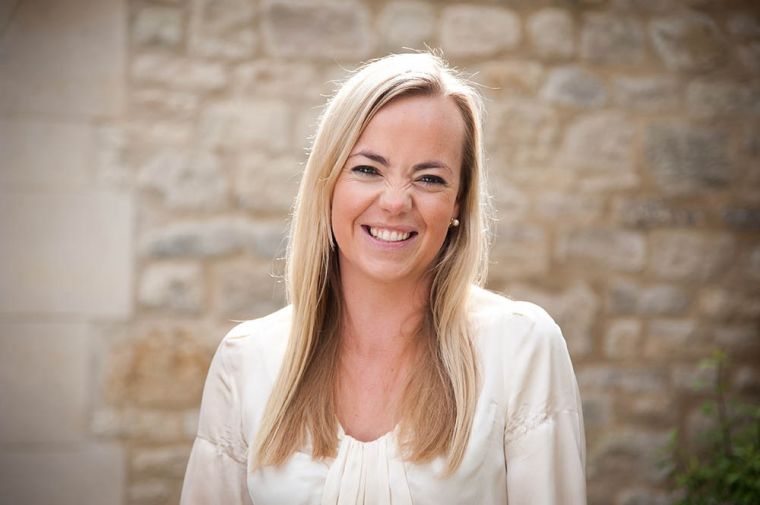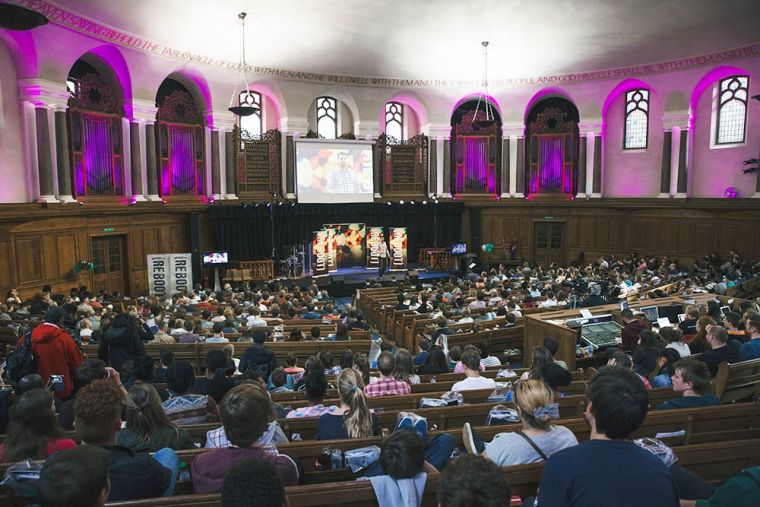Why Does God Allow Depression?
A thousand teenagers will cram into a Westminster conference room on Saturday with hundreds more forced to watch it online because they could not get a ticket for the over-subscribed event.
But this is not a Jeremy Corbyn rally. Nor the latest in Justin Bieber's worship tour.
It is a day-long conference answering questions about faith and reasons for belief in God.
Reboot began four years ago under Ravi Zacharias International Ministeries (RZIM). It sought to address a "mass exodus out the back door of the church of young people". The reasons given were often to do with unanswered questions about Christian belief or the Bible and Reboot looked to address this with a simple question and answer session.
The first event had nearly 400 people and has now spread all around the world to Singapore, Australia and Hong Kong with Cairo, Beirut and Cape Town on the upcoming schedule.
Ahead of this weekend's event in Westminster Christian Today spoke to Amy Orr-Ewing, RZIM's Europe, Middle East and Africa Director, who said she had been "overwhelmed" by the enthusiasm for these events.
"Most of the big successful youth events you see are more around justice, or emotion, or worship and this was more about addressing their questions and doubts they have.
"We were really moved to see all these young people who had really sincere questions and many who said they had asked their pastor and their youth leaders. This was their last point and they said they were going to give up if they didn't hear answers."

The main focus of the day is to answer general questions from participants as well as more specific sessions on science, reasons for God's existence, anxiety and fear, the body and sexuality and the accuracy of the Bible.
We took the opportunity to ask her about depression and why God would allow so many young people to suffer from mental illness and anxiety. Here's what she said:
"I think I would approach that question from a bigger picture of why would God allowing suffering of any sort. To begin to answer that question we need to look at what we read in the Bible about how God created a good world where love and choice are possible.
"A world where love and choice are possible is one where God doesn't control us and force us to be a means to his end. That means we have accountability for the way we make choices but it also makes us vulnerable to the negative things others do.
"That is the cost of love. That is the price we pay for being in a world where love is possible.
"I would understand depression in the context of suffering and in the context that the Bible does not say 'come to God and all your problems will disappear'. The world the Bible describes is the real world where bad things happen to good people. God comes into that world in Jesus and experiences that suffering himself.
"When he promised his presence with us in a suffering world it is not a distant patronising love but a love that is with us and that experiences suffering alongside us."
But what about the injustice that depression is not the fault of the person but can happen as a result of something outside their control that happened to them?

"Sometimes we need to take a step back and look at the possibility that God does not exist," she said.
"Within that framework we are left with the explanation that we came about by chance. We are left with an ultimately arbitrary morality where the strong eliminate the weak with no explanation of why that stuff happens to us.
"Our sense of outrage at evil and someone being abused mentally or physically points to the preciousness and dignity of human life. It points to the significance of the ultimate nature of good and evil.
"Our very outrage in the face of evil points to the fact that good and evil are real and they are not just personal and arbitrary categories. And they can only ever be absolute if there is a God above us.
"It is in the Christian faith that we see both a sense of justice that God actually does care and human beings are precious. We see that we do have a God given dignity and that suffering really does matter and evil really is evil. We also see that perpertrators will face justice even if it is not in this life.
"For me there is tremendous comfort in that framework of the Bible as we look at some of these things because we are never left alone and we are not told it doesn't matter.
"We are told it does matter – it matters to God and it matters to us as Christians."
You can find out more about Reboot here. The conference will be held between 10am – 5pm at Emmanuel Centre, Marsham Street, Westminster, SW1P 3DW. Tickets are sold out but you can watch a live stream of the event here and find out more about RZIM here.











